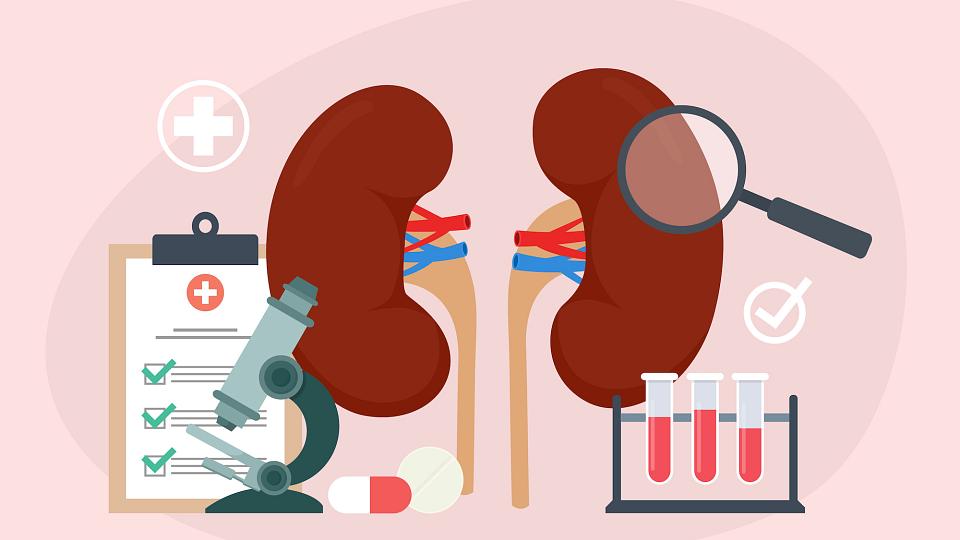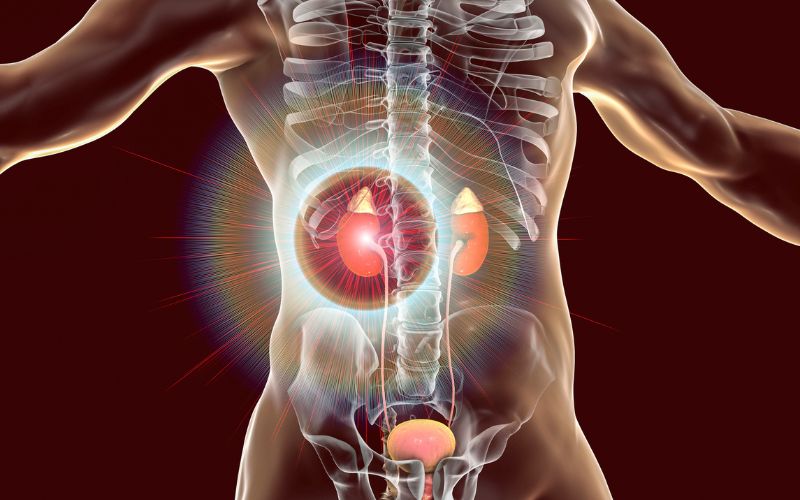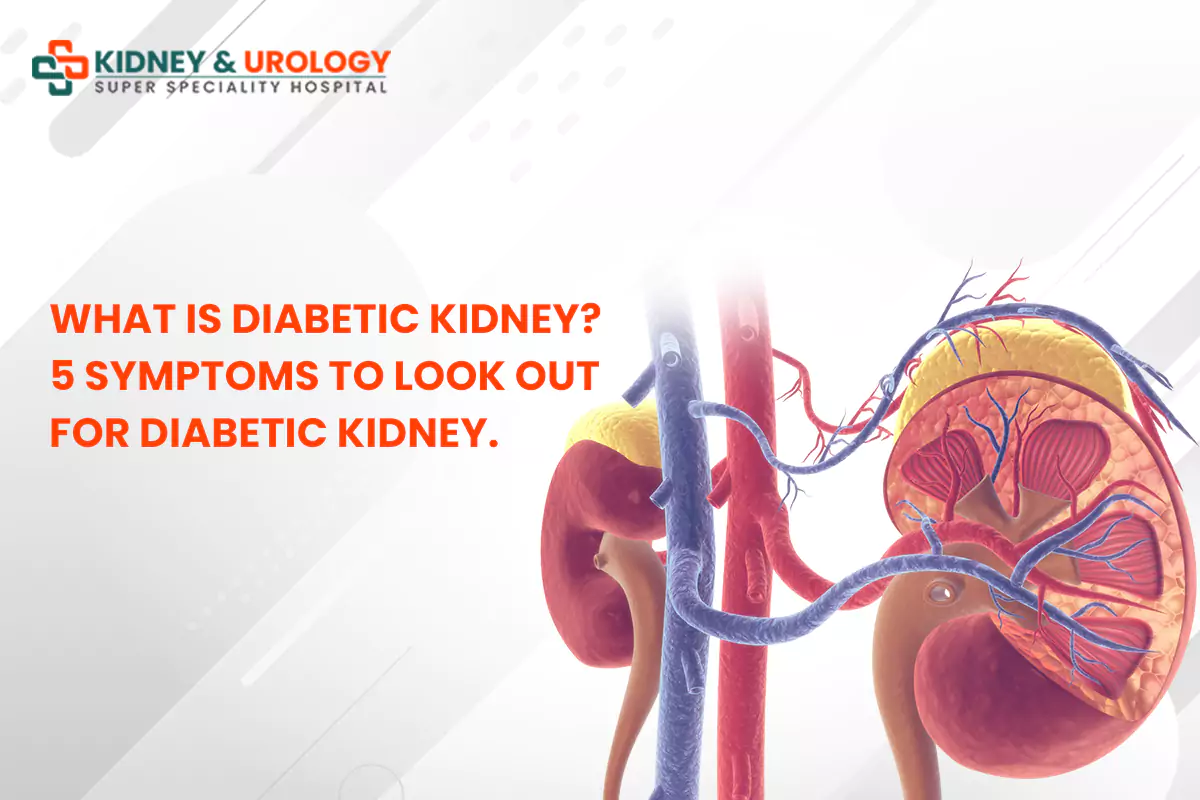Symptoms of Kidney Infection, Treatment, and Dialysis
Kidney infections, medically known as pyelonephritis, are a type of urinary tract infection (UTI) that affects the kidneys. This condition can lead to serious health complications if not addressed promptly. Understanding the symptoms, causes, treatment options, and the role of dialysis is important for patients experiencing kidney infection symptoms or those at risk. Read this blog until the end to learn everything you need to know about kidney infection.
What Is a Kidney Infection?
A kidney infection is a bacterial infection in the urinary tract that begins in the bladder or urethra and spreads to one or both kidneys. The kidneys' primary role is to filter waste from the blood, which they then expel through urine. When infected, the kidneys may become inflamed, impairing their ability to function well. In severe cases, the infection can enter the bloodstream, making it potentially life-threatening.
Symptoms of Kidney Infection
Knowing the symptoms of a kidney infection is important to seek urgent care. Kidney infection symptoms are often more intense than those of a lower urinary tract infection, such as cystitis. General symptoms are:
-
High fever
-
Chills and shivering
-
Painful or frequent urination
-
Abdominal and groin pain
-
Nausea and vomiting
-
Pus or blood in the urine
-
Unusual urine smell
5 Causes of Kidney Infection
The primary cause of kidney infections is bacterial entry into the urinary tract, which may then travel up to the kidneys. Key kidney infection reasons include:
-
Bacterial Infection from the Bladder: Most kidney infections start as a lower UTI in the bladder, often caused by bacteria such as E. coli. This bacterium enters through the urethra.
-
Blockages in the Urinary Tract: Conditions like kidney stones, enlarged prostate, or narrowed urethra can slow urine flow, allowing bacteria to multiply and travel upwards.
-
Reflux of Urine (Vesicoureteral Reflux): A condition where urine flows backwards from the bladder toward the kidneys, increasing infection risk.
-
Weakened Immune System: People with chronic diseases such as diabetes or HIV or those on immunosuppressant medications are more vulnerable to kidney infections.
-
Urinary Catheter Usage: Prolonged catheter use may allow bacteria to enter the urinary tract.
These kidney infection reasons highlight the importance of good hygiene and regular medical check-ups, especially for those at higher risk.
Kidney Infection Treatment
Treatment of kidney infections focuses on antibiotics to eliminate bacteria and reduce symptoms. The type and duration of treatment depend on the severity of the infection. A typical approach includes:
Antibiotics
Most patients with kidney infections require antibiotics to clear the infection. Commonly prescribed antibiotics include trimethoprim-sulfamethoxazole, amoxicillin, and ciprofloxacin. In mild cases, a two-week course of oral antibiotics may be enough. However, for severe infections, intravenous (IV) antibiotics might be necessary and may require hospitalisation.
Pain Relief and Hydration
Pain relievers may be recommended to manage discomfort, while drinking fluids can help flush out bacteria.
Follow-Up Tests
A urine test may be advised after treatment to confirm the infection has cleared. For recurrent kidney infections, imaging tests like ultrasound or CT scans may identify any underlying issues.
Dialysis for Severe Kidney Infections
Severe kidney infections can lead to complications such as acute kidney injury, which may require dialysis to remove toxins from the body. In India, chronic kidney disease affects approximately 17% of adults, with many cases worsened by recurrent infections. Dialysis process for kidney infection plays an important role in such situations, functioning as an important treatment to filter waste and maintain health when kidneys can no longer perform.
Types of Dialysis for Kidney Infections
There are two main types of dialysis process for kidney infection resulting from severe kidney infections:
-
Haemodialysis: This is the most common type of dialysis, where a machine filters waste and water from the blood. It requires vascular access, usually through a vein in the arm or leg. Patients undergo haemodialysis several times a week in a hospital or specialised centre.
-
Peritoneal Dialysis: In this method, a cleansing fluid is introduced into the abdomen through a catheter. The fluid absorbs waste, which is later drained. Peritoneal dialysis can be done at home, offering more flexibility.
Dialysis as a Temporary or Permanent Solution
In cases where a kidney infection causes acute kidney injury (AKI), dialysis may be required temporarily until kidney function recovers. However, if the infection leads to chronic kidney disease (CKD) or end-stage renal disease (ESRD), long-term dialysis or a kidney transplant may become necessary.
5 Ways to Prevent Kidney Infections
Prevention is always preferable to treatment. Individuals, mainly those prone to UTIs, should take proactive steps to prevent kidney infections. Recommended preventive measures include:
-
Drinking Adequate Water: Staying hydrated helps flush bacteria from the urinary tract.
-
Avoid Delaying Urination: Emptying the bladder regularly can reduce bacterial growth.
-
Maintaining Good Hygiene: Wiping from front to back after using the toilet can prevent bacteria from spreading to the urethra.
-
Emptying the Bladder After Intercourse: Urinating soon after intercourse helps clear any bacteria from the urethra.
-
Avoiding Irritants: Limiting the use of products like feminine sprays or douches, which may irritate the urethra, can also lower infection risk.
Regular health check-ups and addressing any urinary symptoms early can go a long way in preventing serious kidney infections.
Consulting a Kidney Doctor in Haryana
For patients in Haryana and nearby regions, consulting a qualified kidney doctor or nephrologist is advisable if kidney infection symptoms appear. Early intervention can reduce complications and improve outcomes. A nephrologist, a specialist in kidney-related diseases, can diagnose and treat kidney infections and associated conditions effectively.
Finding the Best Nephrologist
When searching for the best nephrologist in Haryana, consider factors like experience, specialisation, and patient reviews. Most nephrologists also coordinate with urologists for comprehensive care. Look for specialists with access to advanced facilities for imaging and dialysis to ensure quality care.
Conclusion
Kidney infections are serious bacterial infections that, if untreated, can lead to complications like kidney damage or sepsis. Recognising the symptoms early, understanding the causes, and seeking timely treatment from a kidney doctor in Haryana can make a notable difference. For severe cases, dialysis is a life-saving option, but preventive care remains key.
If you or someone you know experiences symptoms of a kidney infection, consult a nephrologist in Haryana Gurgaon at SS Kidney and Urology Hospital in Haryana














Request A Callback